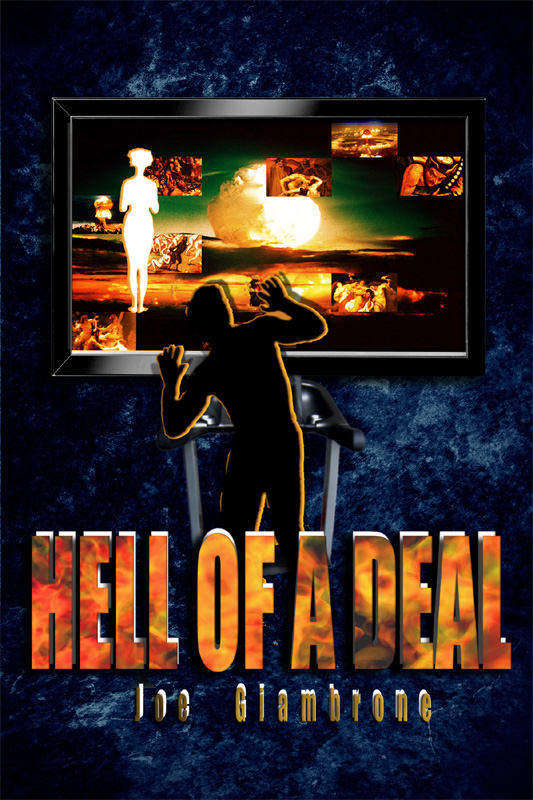Django's Vengeance
Joe Giambrone
Tarantino strikes again to howls and a little hostility. Django is at 88% with critics and 94% with audiences on the Tomatometer. We know that Spike Lee refused to see the film at all, and so I was interested to see what the negative reviews were going to point out.
Obviously, the blood, the gory violence, but many are calling the film self-indulgent and too long. On that point I disagree. The film was about as long as it needed to be to resonate as an epic, a large scale western with social commentary on slavery. Perhaps the extra time wasn't spent in the expected ways, but running time alone is no excuse for a shoddy review.
One of the reviews that caught my attention was by Dana Stevens:
"There's something about [Tarantino's] directorial delectation in all these acts of racial violence that left me not just physically but morally queasy."
That's an interesting point. Obviously the staging is effective. To what end is debatable, but it's certainly well executed and harrowing. When dealing with something as unthinkably massive as centuries of atrocities against millions of people, and the racial psychosis, which accompanied it, I'm not sure that showing blood and violence is all that inappropriate. It could be argued that no amount of red corn syrup can make up for the real history that is meant to be conveyed, however abstractly, through these unexpected genre motifs.
Another review by J.R. Jones said,
"Like the earlier movie, in which Jewish-American soldiers assassinate Hitler, this one draws heavily on minority group revenge fantasy, the only difference being that the trick isn't as impressive the second time around."
To which I would reply that the word "trick" is condescending. And Django Unchained is a considerable improvement over Inglorious Basterds, which was less fun and less focused. This American story may even be too close to home for some. While it's fine to beat up on Nazis, after so much conditioning over the decades, the idea of beating up on genteel white American males packs its own baggage here. Racism is still alive and well, and thus racially-charged American films can be risky, not to mention "tricky" to pull off.
David Germain writes for the AP:
"Django Unchained'' is Tarantino at his most puerile and least inventive, the premise offering little more than cold, nasty revenge and barrels of squishing, squirting blood."
Germain didn't notice the iconic, mythical imagery? Scene after scene gives inventive twists in order to expose slavery to the modern viewer in ways that they haven't seen before. Tarantino, of course, is going to be Tarantino, and you can't fault him for that. You either appreciate a B-movie exploitation take on serious subjects, or you don't. As for the revenge narrative, on that I do agree with Germain. It does confine the story to a set of expected outcomes, and it does lessen the impact of the ending somewhat. That is the trouble with all genre pictures, and yet is one of the main reasons they keep getting made -- audiences supposedly like consistency.
This is a revenge film, and that is pretty much made clear even by the title. Is that sufficient reason to dismiss it? As one would The Count of Monte Cristo? Revenge is a strong motivator, but it is also a peg in the viewer's mind on which to hang some weighty topics. Django's revenge isn't purely personal, but racial, a response to great historical crimes. Great historical crimes that have not been avenged or rectified in the real world, for the most part. Right there is the topic simmering below the silver film grains. A great wrong was done to an entire class of people, and they did not exact the kind of revenge dramatized through the person of Django. Django is a fantasy, through and through, and was never meant to be anything else. His existence is purely on an intellectual plane, the realm of conflicting historical narratives.
Does Django work as intended? Perhaps 94% of the audience today thinks so. I think so. The narrative was immersive and the journey worth taking. Was it perfect? Of course not. No movie is. Was the violence gratuitous? In places, yes. In others it was uncharacteristically restrained and realistic. Bullets do kill people.
I was particularly piqued by some of the reviews by African American reviewers. This is the meat of the issue, and I'll quote a few opinions.
Tanya Steele wrote:
"In Tarantino's imagination, he could accept slavery if he thought of it as black people fighting back under the gaze of a white male. This works for a culture that does not want to confront the evils and system of slavery. We want to believe that it wasn't all that bad. That it was endurable, escapable, provided opportunities for heroics. Black people were slaves because we didn't fight back. Django was a character created by a privileged white male."
Seriously, that's a stretch that just doesn't work. Django's predicament arises from a plausible bounty hunter narrative. Django is "under the gaze of a white male" to make this plot work. It is the initial condition which allows the story to unfold. By story's conclusion the white bounty hunter is not only dead, but Django is free and victorious. His progression from slave to skilled assassin to free and clear hero comes in stages of development. Tarantino is certainly not endorsing slavery, and his white bounty hunter character isn't comfortable with the practice either. It is this character who also grows and rejects the practice to such an extent that he would rather kill the plantation owner at the cost of his own life than to simply shake his hand. These myopic, cherry picked complaints ignore the rest of the story.
Cecil Brown wrote in Counterpunch,
(Note: You can view every article as one long page if you sign up as an Advocate Member, or higher).






